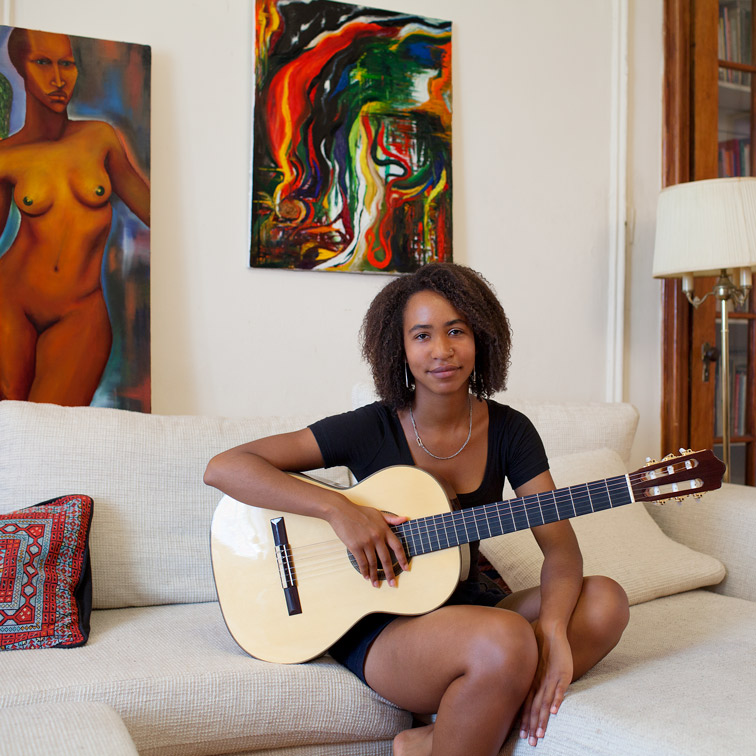I Am Black: Translated

Elena Ruyter
Student
Born: Republic of Belarus
Live: Manhattan, NY
I was not born Black. I denied myself any sort of solid ethnic identity until I came up against enough social (and finally academic) pressures demanding that I categorize myself. But the instinct that told me to resist labels up until that point stems from more than trying to avoid the messy, complicated business of taking about my origins. It was mostly because, for a while, I enjoyed the ambiguity of my appearance. In Egypt they called me Nubian or Rasta. In Zambia I was American Sister. In Morocco I was Moroccan. In Belarus, where I was born, my mix of Cuban and Russian blood made me undesirable. In New York, where I have lived for fourteen years, I am the token brown kid or the Oreo. But soon, sorting through these labels became too tedious. I was tired of having ethnicities shoved in my face and not being able to claim ownership of any of them. So, in response to the poking and prodding of the outside world, I finally started saying ‘I am Black.’ But I soon found that being Black was no more simple in meaning than being racially ambiguous. I have no desire to lend the word ‘black’ to cultural stereotypes that include specific actions, speech patterns, class or fashion, but I would be lying if I said I knew what the deeper meaning of being black is. And honestly, I am still searching desperately for something to hold on to that justifies my identifying as Black. I am not African-American, I have no connection to my roots, little to do with my cultural heritage and my entire family is Caucasian. Is it going to take more than being a child of the African Diaspora to be able to say I am Black? Is it something you have to earn or understand fully to be a part of? Is it something I get to decide or am I subject to shifting, uncertain, diversely conjured opinions of others?
![]()